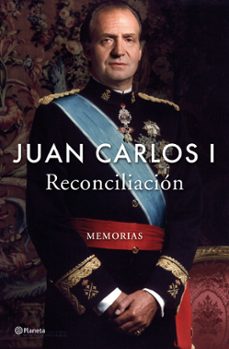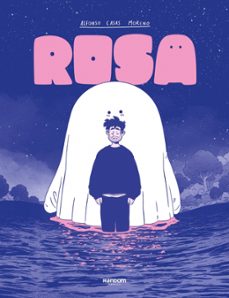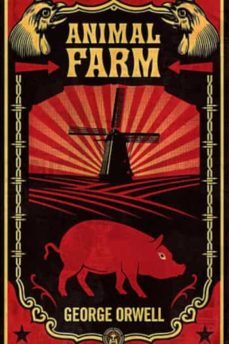Imprescindibles
Más vendidos Libros más leídos eBooks más leídos Todos los libros Todos los libros Autores destacados Series y sagas
Recomendados Libros recomendados Autores destacados Libros que inspiran Vidas con historia LGTBIQ+ English books
Ficción
Literatura Contemporánea Estudios literarios Clásicos Cuentos Poesía Teatro Libros de bolsillo Sagas literarias
Géneros literarios Novela romántica y erótica Novela negra Novela histórica Narrativa fantástica Novela de ciencia ficción Novela de terror Narrativa de humor Narrativa de viajes
No Ficción
Ciencias y tecnología Biología Ciencias Ciencias naturales Divulgación científica Informática Ingeniería Matemáticas Medicina Salud y dietas Formación Idiomas Estilo de vida Libros de Cocina Guías de viaje Narrativa de viajes Deportes Libros de Juegos Manualidades
Humanidades Autoayuda y espiritualidad Ciencias humanas Derecho Economía y Empresa Psicología y Pedagogía Filosofía Sociología Filología Biblioteconomía Estudios filológicos Estudios lingüísticos Estudios literarios Historia y crítica de la Literatura
Infantil
Juvenil
#Jóvenes lectores Narrativa juvenil Clásicos adaptados Libros Wattpad Libros Booktok Libros de influencers Libros de Youtubers Libros Spicy Juveniles Libros LGTBIQ+ Temas sociales Libros ciencia ficción Libros de acción y aventura Cómic y Manga Juvenil Cómic Juvenil Manga Shonen Manga Shojo Autores destacados Jennifer L. Armentrout Eloy Moreno Nerea Llanes Hannah Nicole Maehrer
Libros de fantasía Cozy Fantasy Dark academia Hadas y Fae Romantasy Royal Fantasy Urban Fantasy Vampiros y hombres lobo Otros Misterio y terror Cozy mistery Policiaca Spooky Terror Thriller y suspense Otros
Libros románticos y de amor Dark Romance Clean Romance Cowboy Romance Mafia y amor Romance dramatico Romance dramatico Romcom Sport Romance Otros Clichés Enemies to Lovers Friends to Lovers Hermanastros Slow Burn Fake Dating Triángulo amoroso
Cómic y Manga
Novela gráfica Novela gráfica americana Novela gráfica europea Novela gráfica de otros países Personajes, series y sagas Series y sagas Star Wars Superhéroes Cómics DC Cómics Marvel Cómics otros superhéroes Cómics Valiant
eBooks
Literatura Contemporánea Narrativa fantástica Novela de ciencia ficción Novela de terror Novela histórica Novela negra Novela romántica y erótica Juvenil Más de 13 años Más de 15 años Infantil eBooks infantiles
Humanidades Autoayuda y espiritualidad Ciencias humanas Economía y Empresa Psicología y Pedagogía Filosofía Historia Historia de España Historia Universal Arte Cine Música Historia del arte
Ciencia y tecnología Ciencias naturales Divulgación científica Medicina Salud y dietas Filología Estudios lingüísticos Estudios literarios Historia y crítica de la Literatura Estilo de vida Cocina Guías de viaje Ocio y deportes
RICHARD KNOTT
Recibe novedades de RICHARD KNOTT directamente en tu email
Filtros
Del 1 al 2 de 2
The History Press 9780752493930
During the Second World War, British artists produced over 6,000 works of war art, the result of a government scheme partly designed to prevent the artists being killed. This book tells the story of nine courageous war artists who ventured closer to the front line than any others in their profession.Edward Ardizzone, Edward Bawden, Barnett Freedman, Anthony Gross, Thomas Hennell, Eric Ravilious, Albert Richards, Richard Seddon and John Worsley all travelled abroad into the dangers of war to chronicle events by painting them. They formed a close bond, yet two were torpedoed, two were taken prisoner and three died, two in 1945 when peacetime was at hand. Men who had previously made a comfortable living painting in studios were transformed by military uniforms and experiences that were to shape the rest of their lives, and their work significantly influenced the way in which we view war today.Portraying how war and art came together in a moving and dramatic way, and incorporating vivid examples of their paintings, this is the true story behind the war artists who fought, lived and died for their art on the front line of the Second World War.
Ver más
eBook
The History Press 9780750965651
The Trio tells the story of three war correspondents, two Englishmen and an Australian, all in their 30s, whose friendship was forged during the Second World War. They became so close that their colleagues dubbed them The Trio, sometimes out of disgruntled rivalry. Alan Moorehead, Alexander Clifford and Christopher Buckley worked for the Express, Mail and Telegraph respectively. Clifford and Moorehead lived together more closely than most married couples, and all three correspondents spent the war years travelling relentlessly, chasing news and writing stories, while being reliant on each others friendship and mutual trust. They slept under the desert stars, in sumptuous Italian villas, in trains and army trucks. They were frequently in the line of fire, while their names became synonymous with the best war reporting. The Trio describes their relationship, what happened to each of them in the war and finally, when the fighting was over, how success gave way to personal tragedy.
Ver más
eBook
Del 1 al 2 de 2



























